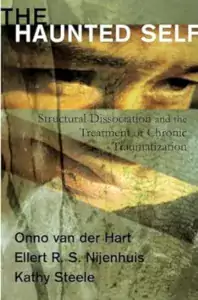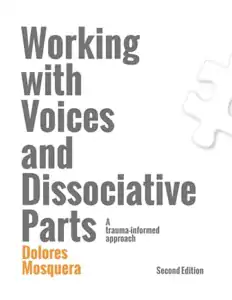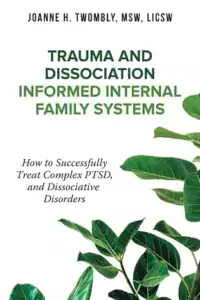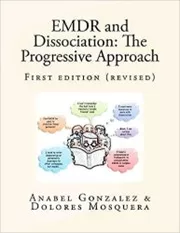Dissociative Identity Disorder (DID) and OSDD Treatment
Peter has a special interest in working with adults who experience severe dissociation, including Dissociative Identity Disorder (DID), Dissociative Amnesia, Depersonalization/Derealization Disorder, and Other Specified Dissociative Disorder (OSDD). Peter understands that seeking support for dissociative symptoms can be challenging, so he looks to work cautiously and collaboratively with you.
What are Dissociative Disorders
According to the International Society for the Study of Trauma and Dissociation (ISSTD), Dissociative disorders are generally accepted to be caused by severe trauma, usually in early childhood. One well established model of dissociative disorders is the Structural Dissociation of the Personality.

Structural Dissociation model and Dissociative Disorders
According to this model, a person, who experiences overwhelming and unresolvable trauma, often from the very people they rely on for survival, will naturally “split” their personality into parts that “get on with everyday life” (e.g. student, socialise with friends, interact with parents) and trauma parts that hold the traumatic experiences. The more extreme, overwhelming and chronic the trauma, the more dissociation there is between parts. Parts are also referred to as alters, alternate personalities, selves, fragments, baby/little/younger/teenage/adult me, exiles/protectors.
Parts may be unaware of other parts, with parts experiencing themselves and other parts as completely separate individuals. Switching occurs when a part takes control of the body in which they reside.
DID and OSDD Treatment
Carefully staged trauma-focused psychotherapy Therapy for DID and OSDD results in improvement, whereas dissociative symptoms persist when not specifically targeted in treatment. Treatment structure for DID/OSDD, like CPTSD, consists of three stages: (1) safety, stabilization and symptom reduction,(2) working directly and in depth with traumatic memories, and (3) identity integration and rehabilitation.
DID Treatment - How can the therapist and I work with dissociative parts?
Therapy involving a dissociated system requires a tailored approach. Work by Dolores Mosquera provides a framework for structuring therapy sessions.

Sessions often start with a review of the last session, asking how the entire system has been since the last session, if the was any backlash from parts following the session. Progress of home practice is reviewed. Dissociative switching that occurred since the last session is explored, including triggers and internal reactions, including dissociative phobias of other parts and/or traumatic material. Through a process of validating the function of parts, their feelings and needs, leading to an exploration of alternative ways of responding, increased co-operating and teamwork with the system can be built over time.
IFS treatment for Dissociative Disorders - Can it help?
If you expereince a dissociative disorder, then some sort of parts-based approach is likely to be helpful.
From a phase-oriented trauma treatment perspective, coping and stabilisation skills require a therapy model that can build awareness of your system and provide ways to build more cooperation between alters/parts.
Work by Joanne Twombly and others highlights ways that Internal Family Systems therapy framework can help with building insight, communication, orienting parts stuck in trauma time to the present, and increasing cooperation.

Trauma and Dissociation informed IFS
Phase 2 processing of traumatic material can be particularly challenging for complex dissociated systems. Alters/parts that hold traumatic material can benefit by the IFS approach to witnessing their past experiences and unburdening any traumatic material they have been carrying.
EMDR treatment for Dissociative Disorders - Can it help?
People who experience dissociative alters/parts have often experienced emotionally traumatic events, often beginning early in childhood, that have profound impacts in the present day, on their mental capacity, emotional self-regulation, and interpersonal relationships.
As therapy unfolds, the relationship between earlier trauma and the formation and maintenance of dissociative parts often becomes clearer. Work by Gonzalez, Mosquera and others highlights the opportunity for therapies such as EMDR to safely reprocess traumatic memories. EMDR can augment an initial trauma focused stabilization approach with enhancement of mental capacity building, improving self-care, and strengthening co-consciousness. EMDR can be very helpful with reducing distress associated with intrusive memories that are experienced on a regular basis in the person’s day-to-day life.

EMDR reprocessing of memories with people who experience dissociative parts is done gradually, progressively and with buy-in from the person’s internal system.
NDIS Capacity Building for Dissociative Identity Disorder and DDNOS
Peter is experienced in the assessment of DID and DDNOS and can assist with preparation of psychological reports in support of accessing the NDIS. Peter currently provides NDIS Capacity Building supports for NDIS Plan Managed individuals.
